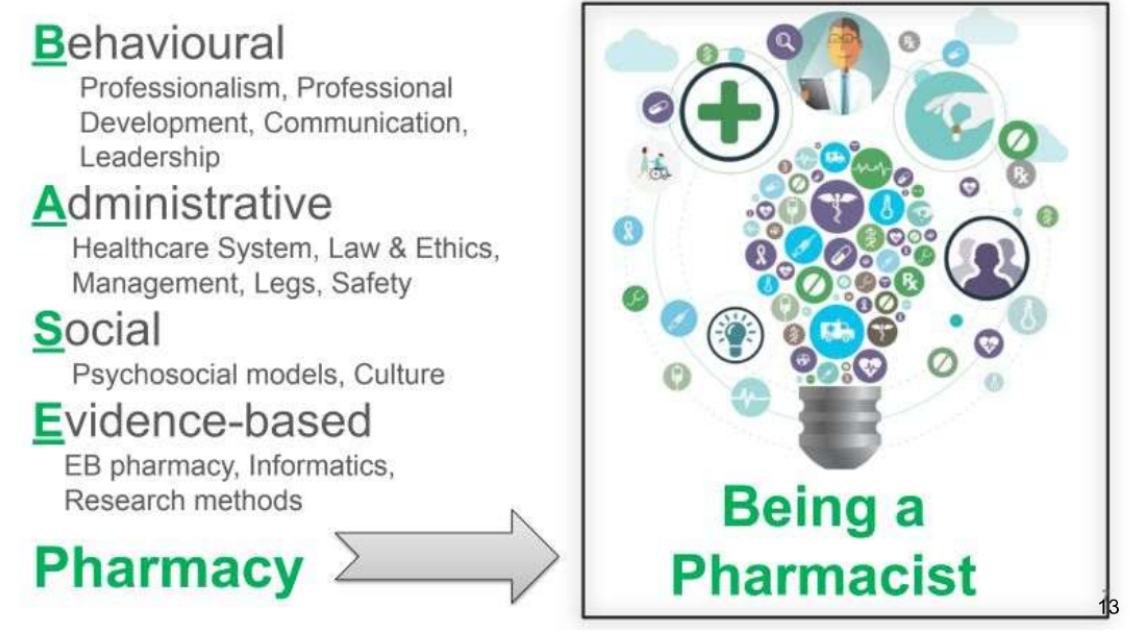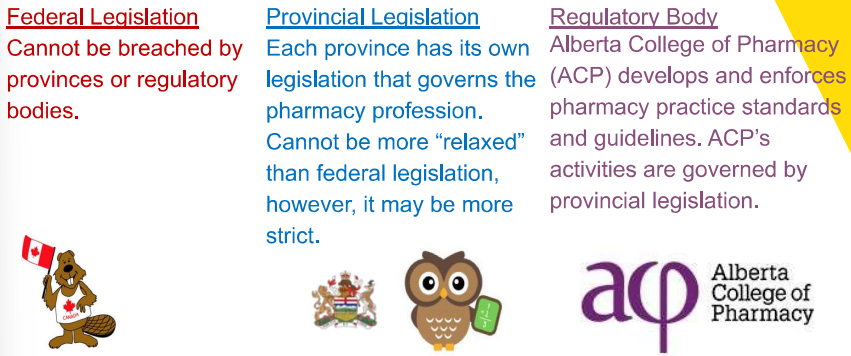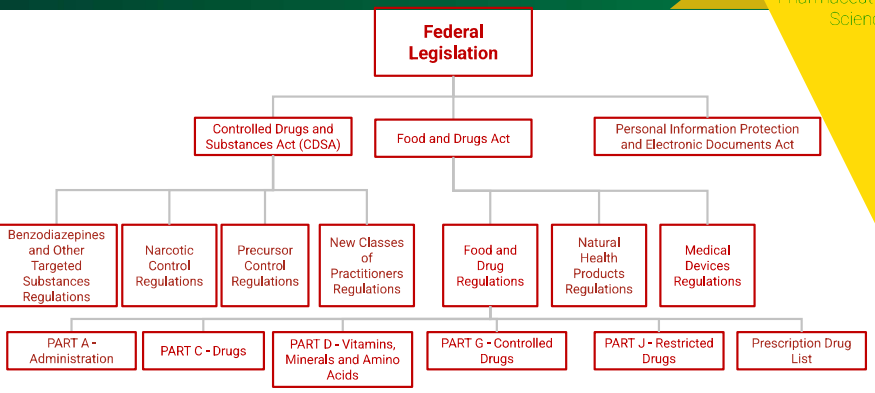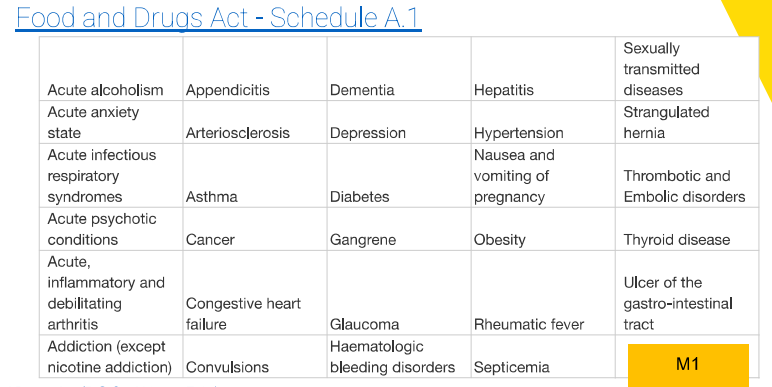PHARM 212 - MIDTERM
1/46
There's no tags or description
Looks like no tags are added yet.
Name | Mastery | Learn | Test | Matching | Spaced |
|---|
No study sessions yet.
47 Terms

What does BASE stand for?
behavioural, administrative, social, evidence-based
What are the 2 types of leaders (depending on the situation)?
designated, situational
What are the 3 tools for leading teams?
briefs, huddles, debriefs
Briefs are ——- short sessions used to clarify roles of team members and discuss patient updates, plan of patient’s care, goals of the team.
short
Huddles are used to communicate —— to the agreed upon plans (i.e. patient condition change, intervention issues/concerns).
changes
Debriefs focus on ——- team performance (What went well? What didn’t go well?)
improving
In the debrief, seniority and professional goals should be put aside and everyone should speak freely. T/F
T
Is pharmacy considered a job or a profession?
profession
Why is pharmacy considered a profession and not a job?
type of job that requires extensive and specialized education, training, and skills
i.e. having PharmD degree does not make us a pharmacist, requires training + pass the board exam
What are adopted tenets of professionalism in pharmacy?
person-centered (patient-centered care), collaborator, leader, active learner, use good judgement, has a strong set of values

What are the 3 legislations that prescribes our practice?
federal legislation, provincial legislation, regulatory body (ACP)
The provincial legislation can be more relaxed or strict than the federal legislation.
can only be more strict
The ACP’s activities are governed by the —— legislation.
provincial

Which of the following does most prescribed drug fall under?
a) Controlled Drugs and Substances Act (CDSA)
b) Food and Drug Act (FDA)
c) Personal Information Protection and Electronic Documents Act
b
What are the 3 components under the federal legislation that we are most concerned with?
act, regulations, schedules
A ——- ——- means a drug or device or any combination of drugs and device. (i.e. metered inhaler device that contains medication).
therapeutic product

According to the Food and Drug Act - Prohibited advertising 3 (1):
No person shall advertise any food, drug, cosmetic or device to the general public as a treatment, preventative or cure for any of the diseases, disorders, or abnormal physical states referred to in Schedule A.1.
How come we still see these advertisements?
media from other countries
they are advertised to be used for another condition besides the ones mentioned in Schedule A.1
Who decides the Prescription Drug List (add/remove meds from this list)?
the Minister (federal)
Who is able to define who can sell/dispense a prescribed drug?
laws of province
What is the typical flow of drug sale?
manufacturer → wholesaler → hospital/clinic/pharmacy
What can you refer to to find the prescription drug list?
Drug and Health Product Register
The ——- ——- is the first manufacturer to market/patent the drug.
innovator manufacturer
When you search drugs in the prescription drug list, do you search the brand name or the generic name?
generic
What health care professions in Alberta are subject under the Health Professions Act?
pharmacists, pharmacy technicians, student pharmacists
What is the difference between Schedule 1 vs. 2 vs. 3 drugs?
schedule 1 - requires prescription to be dispensed
schedule 2 - non-prescription, but requires pharmacist assessment for sale
schedule 3 - pharmacy only sale (consumer self selection) - locked up if the pharmacy is not open (i.e. in a grocery store)
Are pharmacists (in Alberta) allowed to prescribe a schedule 1 drug?
yes - but only under emergency situations
Student pharmacists can do the same restricted activities as a clinical pharmacist when registered and supervised by a clinical pharmacist. T/F
T
note: when prescribing, must write supervising pharmacist’s name
What is the difference between selling and dispensing a drug?
selling - between pharmacies
dispense - to the patient
Who establishes the Standards of Practice for the Profession and Pharmacy?
regulatory body (i.e. ACP - Alberta College of Pharmacy)
Standards require pharmacists and pharmacy technicians to use their assessment of their ——-. Just because you CAN dispense/prescribe/inject, does not mean you MUST (professional judgement).
competence
What is the difference between legislation vs. standards vs. best practices?
legislation - absolute minimum (Food and Drug Act, Health Professions Act, Pharmacy and Drug Act)
standards - acceptable (Standards of Practice for Pharmacists and Pharmacy Technicians, Standards for the Operation of Licensed Pharmacies)
best practices - what is the right thing to do (Patient Care Process)
A regulated member must establish a professional relationship with a patient before the regulated member provides professional services to the patient. T/F
T
The capacity to provide content (i.e. mature minors vs. non-mature minors) can be reliant on the situation and professional judgement of the pharmacist. T/F
T
i.e. selling Plan B to a minor
A regulated member must practice in a way that —— ——- or perceptions of stigma that can lead to feelings such as shame, guilt, and mistrust by a patient.
minimize stigma
A regulated member obtains —- ——- from patients to provide professional services (i.e. not just signing a form).
informed consent
A regulated member must honour a patient’s request to —— ——- to another regulated health professional;
transfer care to another regulated member of a patient’s choice as soon as reasonably possible and within a ——- that minimizes disruption to care,…
transfer care, timeframe
You are on your community pharmacy visit.
You observe a patient being served by a pharmacy team member, who you were introduced to (introduced as a pharmacy assistant).
The pharmacy assistant accepts a prescription from the patient, enters the prescription into the pharmacy information system and generates a prescription label.
The patient asks the pharmacy assistant if their new prescription will interfere with their current medications.
The pharmacy assistant says “let me run it through my interaction checker.” And then says “No - looks like there are no issues.”
The pharmacy assistant then tells the patient i will be about 15 minutes to get their prescription ready, and the patient leaves.
Any concerns?
Pharmacy assistant is an un-regulated member, and the drug interaction counselling is a restricted activity to the pharmacist - the assistant acted outside their scope of practice and provided reassurance without pharmacist oversight
What should have happened:
“that’s a great question - our pharmacist will review your prescription and let you know if there are any concerns with your medications”
the pharmacist should then perform the clinical check, confirm safety, and counsel the patient when the medication is dispensed
The mother of a pharmacist asks the pharmacist for some advice on what dose of ibuprofen they should take for their sore back.
Any concerns?
conflict of interest - regulated members must not provide service to themselves, family, or close personal relationships with unless it’s an emergency or no other regulated members are available (think: what if it was a narcotic?)
best practice - ask a colleague